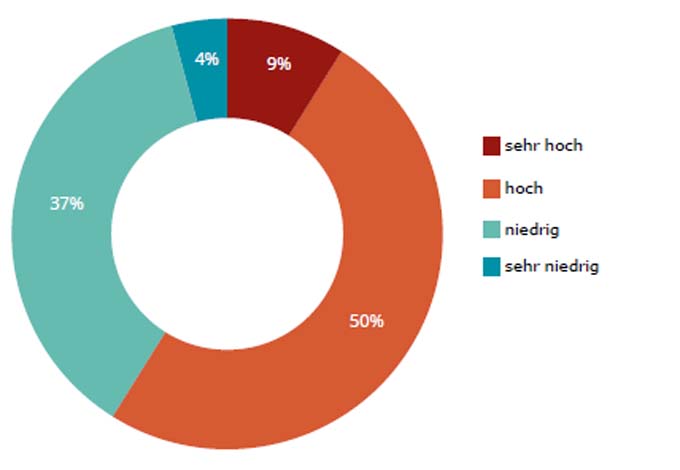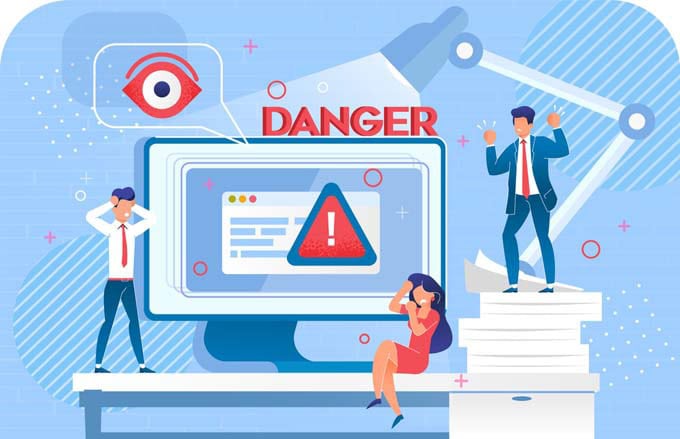Geopolitics: Swiss companies are challenged
Political or military crises, trade disputes, raw material conflicts or climate change: Geopolitical developments are central to the business activities of most Swiss companies. Nevertheless, only a few boards of directors take comprehensive measures to record the risks and develop scenarios.

Dramatic changes are emerging in geopolitics: The war in Ukraine has global consequences, the rivalry between China and the USA is coming to a head, and Switzerland's role in Europe remains unresolved. Restrictive corona measures in individual regions of Asia and high inflation worldwide have also brought geopolitical risks into sharper focus. Swiss boards of directors are also concerned about all this. Nevertheless, only a few are taking concrete measures, as the latest swissVR Monitor, compiled by the swissVR Board of Directors Association, the consulting firm Deloitte and the Lucerne University of Applied Sciences and Arts, shows.
BoD committees anticipate high geopolitical risks
Geopolitics is fundamentally relevant for the export-oriented Swiss economy. This is because many companies are dependent on developments in international markets. The current uncertainties tend to reinforce the high importance: 59 percent of the surveyed board members assess the geopolitical risks for their own company in the next twelve months as high or even very high (see chart). At the same time, the economic outlook is becoming gloomier: Around one third of the 420 respondents expect a negative economic trend in the coming year.

Geopolitics: No overreactions in boards of directors
The vast majority (93%) state that their board of directors generally takes measures with regard to geopolitical risks. A good two-thirds of boards (69%) regularly discuss geopolitical developments, and more than one-third conduct scenario analyses (39%) or make strategy adjustments (35%). The fact that, on average, only two measures are taken per board committee shows that many boards are vigilant and keep an eye on geopolitical risks, but do not overreact in the face of uncertain developments or leave the planning of measures to management. "We are experiencing a turning point in time - not only in politics, but also in business. The changed geopolitical realities require a rethink in the management floors of many Swiss companies. It is imperative that politics be taken into account as a new central dimension in strategic decisions," says Reto Savoia, CEO Deloitte Switzerland.
Developments in geopolitics as a challenge and an opportunity
Almost all companies (98%) face challenges in view of current geopolitical developments: The availability and cost of raw materials and energy (50%) and supply chain disruption (48%) are most frequently cited. In contrast, three-quarters of the BoD members surveyed (77%) also see opportunities in geopolitical developments. These mainly include product and service innovations (34%) and greater cost and process efficiency (30%).
The increasing challenges on the global markets require greater commitment with regard to geopolitical risks. Christoph Lengwiler, a lecturer at the Lucerne University of Applied Sciences and Arts, warns, however, not to fall into actionism: "In crisis situations, there is a risk of operational hectic in the board of directors. However, strategic management should always have priority. The board must think in scenarios, evaluate options for action, and provide impetus. Concrete measures should then be initiated by the management."
Half of the companies directly affected by the Ukraine war
Despite regular exchanges about geopolitical developments, seven out of ten board members (71%) were surprised by the outbreak of war in Ukraine and its extensive economic consequences. Only just under one-fifth of the board members surveyed (19%) said that geopolitical risks in Eastern Europe and in connection with Russia had been addressed in risk assessments by their own board in recent years. Directly affected by Russia's attack on Ukraine this year, according to the survey, are about half of the companies (48%).
The war in Ukraine forced numerous companies to take a stand. This is likely to become increasingly necessary in the future: "Companies will be increasingly confronted with the need to position themselves. In order to be able to make a decision for or against a market, in-depth analyses and strategic decisions by the board of directors are necessary," Cornelia Ritz Bossicard, President of swissVR, is convinced.
Sources: swissVR / Deloitte AG / Lucerne University









